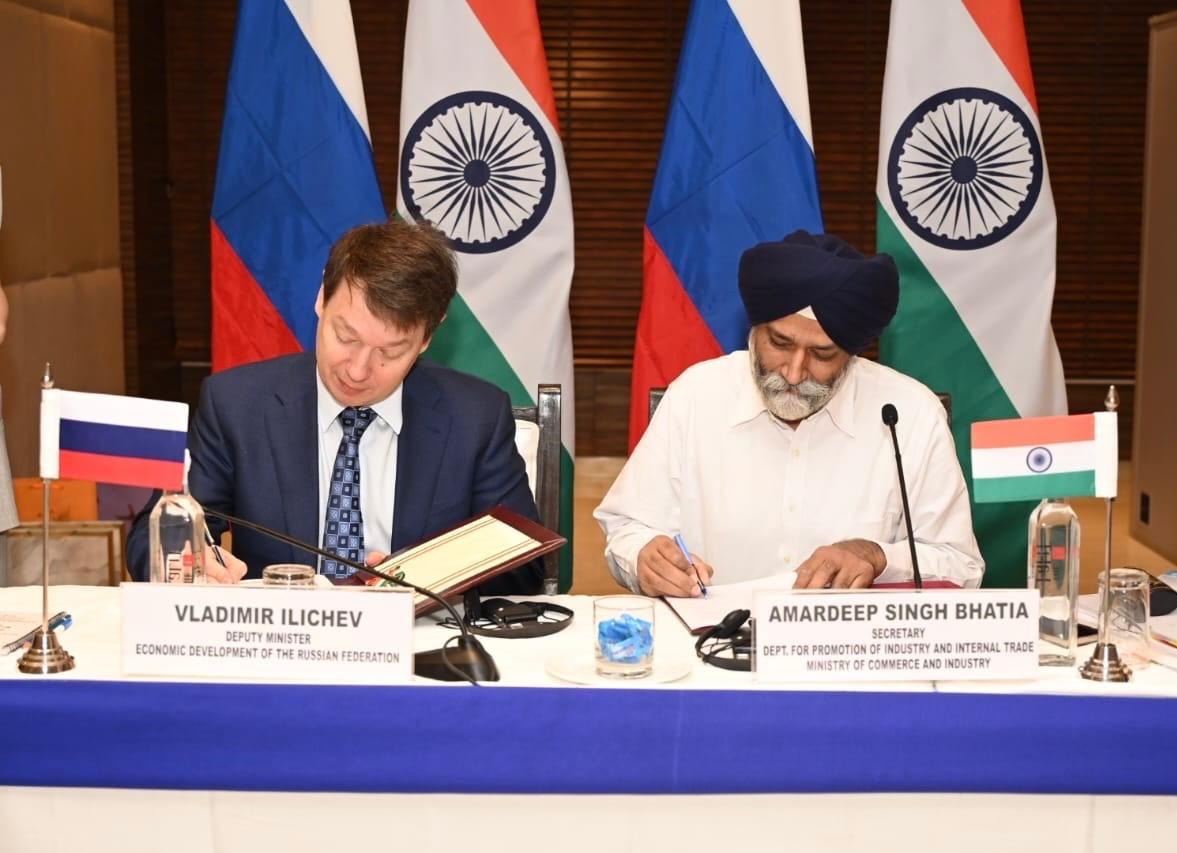
India – Russia deepen Strategic Cooperation: Six new projects signal a shift toward Sustainable Geopolitical Alignment
NEW DELHI : The decision by India and Russia to collaborate on six fresh strategic projects marks more than just another chapter in their historic partnership — it reflects a deliberate recalibration of geopolitical and economic priorities in an increasingly fragmented global order.
Announced during the 8th Session of the India-Russia Working Group on Priority Investment Projects (IRWG-PIP) held in New Delhi, this new framework of cooperation is designed not only to deepen bilateral ties but also to embed sustainability and technological resilience into the evolving India-Russia relationship.Although the specific projects remain undisclosed, early indications suggest that the areas of focus include nuclear energy, shipbuilding, transport infrastructure, energy transmission, and possibly critical resource mining — all sectors where sustainable innovation and strategic autonomy are becoming non-negotiable. This signals that India and Russia are now pursuing economic engagement strategies that are long-term in vision, climate-conscious in structure, and geopolitical in calculation.For India, the significance is twofold. First, amid a shifting global energy landscape and an increasingly competitive Indo-Pacific region, India needs to diversify its critical infrastructure partnerships beyond traditional Western allies.
Engagements with Russia, particularly in fields like nuclear energy and advanced shipbuilding, offer pathways to fortify India’s domestic capacity in clean energy generation and green transport, reducing external dependencies in critical sectors. Second, strategic projects with Russia offer India greater leverage and insulation against supply chain disruptions that could emerge from geopolitical tensions elsewhere, particularly across the Atlantic and Pacific arenas.For Russia, facing its own set of sanctions and re-alignments post-Ukraine conflict, the partnership with India offers a lifeline to tap into one of the world’s fastest-growing large economies. It also provides Moscow an opportunity to engage in projects that are future-facing — with climate resilience, technology cooperation, and sustainable infrastructure at their core — rather than merely transactional commodity trade.
Viewed through a broader lens, the India-Russia investment reset aligns with the emerging contours of multipolar globalization: a world where bilateral partnerships are no longer driven solely by immediate market access but are increasingly shaped by shared technological ambitions, environmental stewardship, and mutual resilience strategies.Yet, challenges remain. India’s climate commitments under COP28 and its 2070 net-zero goals require that every new infrastructure and energy project — even with strategic allies like Russia — adheres to stringent sustainability standards. Both countries will need to ensure that new collaborations do not merely advance industrial capacity but also actively contribute to decarbonization, green technology transfer, and environmental risk mitigation.
As the six new projects take shape, what is becoming evident is that India and Russia are moving beyond legacy diplomacy. They are constructing a relationship built around strategic autonomy, sustainable development, and long-term resilience — a partnership calibrated for a world where power will belong not just to the strongest, but to those who can endure, adapt, and innovate responsibly.In the evolving chessboard of global alliances, India’s quiet but steady rebalancing with Russia, now reinforced through sustainable strategic projects, represents not a nostalgic return to Cold War alignments — but a forward-looking strategy to secure its interests in a rapidly transforming world.

